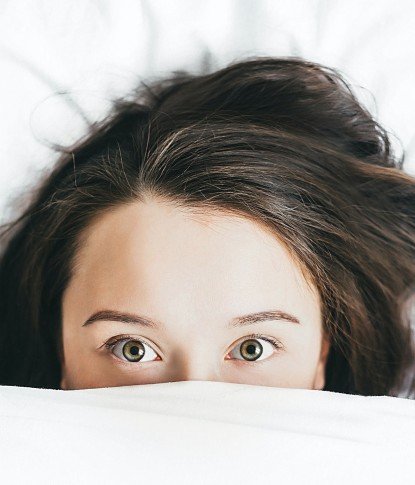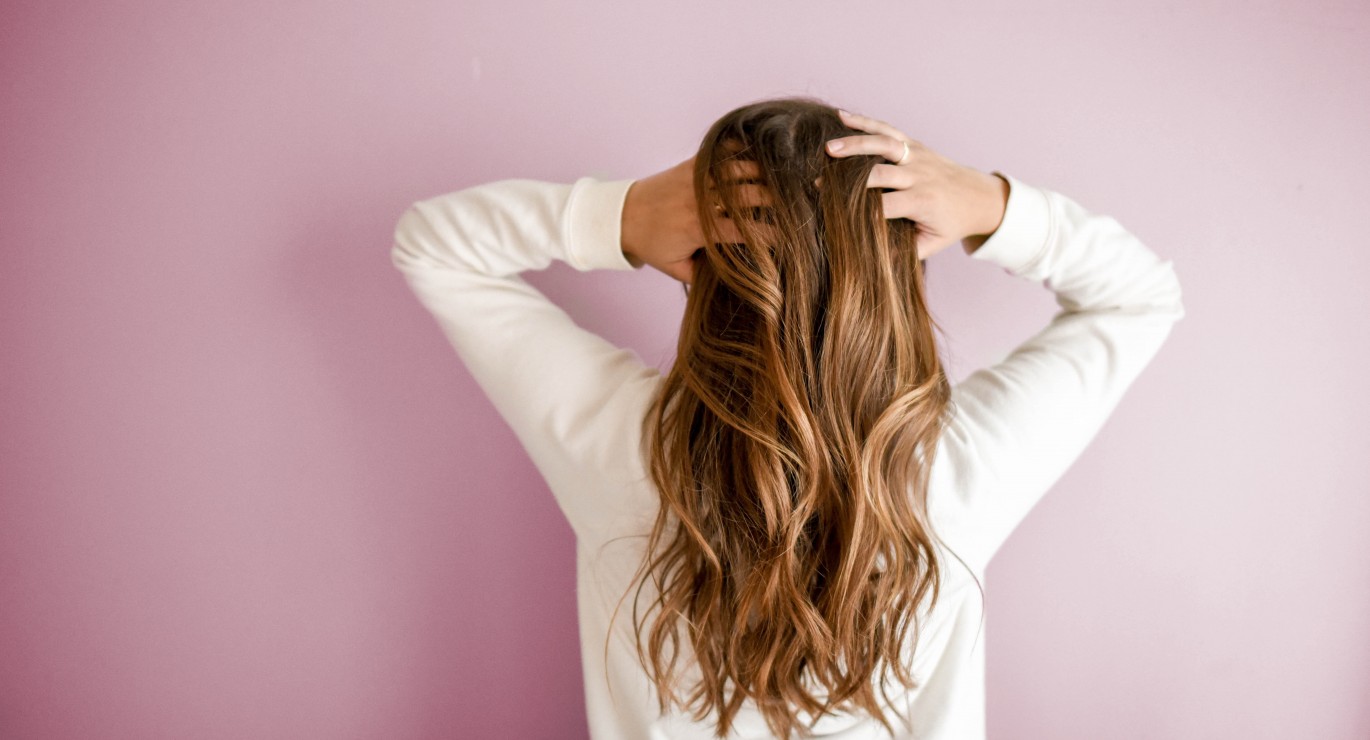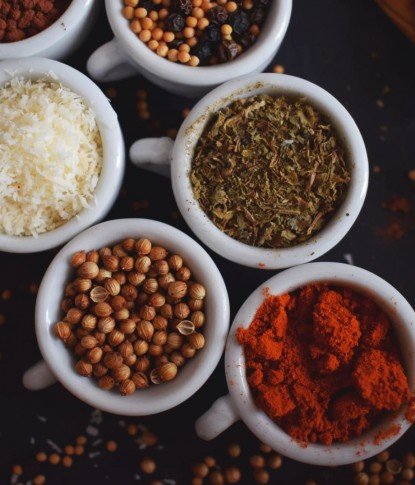
Hair plays a big role in how we see ourselves, so when it starts thinning, shedding more than usual, or just looking dull and lifeless, it can really knock your confidence. Whether you’ve just noticed changes or you’ve been dealing with hair loss for a while, you’re not alone, and there are targeted nutrients that can help.
The truth is: what’s happening inside your body has a major impact on what’s happening on your head. Nutritional deficiencies, stress, hormonal imbalances, and even gut health can all influence hair health. And when your body is missing certain vitamins or minerals, your hair is often one of the first things to suffer.
Want to know what your hair needs? Take our free consultation and find out what vitamins could help you grow thicker, stronger hair, based on your body, not guesswork.
Hair loss can be very distressing for both men and women, from the age of around 40 the speed of replacing old hairs starts to decline. Hair loss can be upsetting, cause a lot of worry and may take you on a steep emotional journey. The cause of hair loss may not be clear because it can take a while to show. Hair loss may not be complete and only result in thinning. But there are vitamins, minerals and other nutrients to help achieve thicker hair.
What causes hair loss?
There can be a combination of reasons that have an impact on the quality of your hair[1].
Here at Everly Wellness, we use an online consultation so that you may discover what vitamins help your hair. The consultation has been designed to find out the contributory factors that impact hair quality, and then make suggestions as to what vitamins are good for your hair.
Poor hair quality can be due to a vitamin deficiency. Some vitamins and nutrients will have a direct effect on the structure of the hair, whereas others have antioxidant properties that help fight extrinsic factors that have a negative impact on hair. The consultation may identify hormone imbalances that may be corrected using vitamins and minerals to help your hair grow thick and strong.
Several underlying conditions can affect hair quality:
- Low iron levels – When you have low iron stores, your body goes into survival mode. Since hair is not necessary for survival, it is not prioritised by the body. Hair falls out during its natural cycle and is not replaced[2].
- Stress – You will know if this is the case if your hair has started falling out after a stressful event or stage in your life[3].
- Thyroid imbalances – Your thyroid regulates growth and metabolism. This can be supported with vitamins and minerals to help with optimum hair growth.
- Illness or recovery – In times of illness, your body puts all of its reserves into healing, fighting infection and recovering. As hair is not essential to health, it is not a priority for your body.
- Nutritional gaps – A combination of nutrients including vitamins, minerals, protein and fatty acids are needed for strong, healthy hair.
The top vitamins and nutrients for hair growth
💊 B-Vitamins (Biotin & Pantothenic Acid)
Biotin is one of the most popular hair vitamins for good reason. It helps build keratin the protein that makes up your hair, and supports the strength and resilience of your follicles. Pantothenic acid supports the adrenal glands, which are important for hormone balance and hair growth.[4].
🍊 Vitamin C
Vitamin C is a powerful antioxidant that helps protect hair follicles from damage. It also helps the body absorb iron and supports collagen production, both essential for thicker hair. By working as an antioxidant, vitamin C fights oxidative stress that contributes to hair greying and hair loss[5].
🐟 Omega-3 fatty acids
These healthy fats reduce inflammation, support scalp hydration, and help regulate hormones that can trigger hair thinning. Omega-3s have been shown to help support hair density and strength.[6]
🧬 Collagen
Collagen is the main structural protein in hair. As we age, our natural collagen production slows down. Supplementing with collagen may help regenerate hair follicles and promote thicker, more resilient strands.[7]
⚙️ Zinc
Zinc is vital for healthy hair follicles and helps prevent hair shedding. It also plays a role in tissue repair, which helps maintain the structure of growing hair. Zinc deficiencies are linked to hair thinning and patchy loss.[8]
Why guess when you can know?
Everly’s personalised quiz is built to find the actual gaps in your nutrition and give you a custom recommendation based on your answers, health goals, and lifestyle.
It only takes 5 minutes to learn what vitamins you really need (and which you don’t)
FAQs: Hair loss, hair vitamins & you
It depends on the root cause, but common deficiencies include biotin, zinc, iron, vitamin C and collagen. Our consultation can help identify any nutritional areas that may be contributing to your hair loss, and then make the vitamin and nutrient recommendations to address your personal needs.
Biotin plays a major role in maintaining the health of our hair, nails and skin. It helps to build proteins necessary for youthful hair, like keratin. Biotin, which is a B vitamin can also help to protect the skin from acne, fungal infections, rashes, and severe dryness and cracking. When tissue or muscle is broken down, B vitamins including biotin work to build-back the strength of muscle and tissue that leads to growth.
Yeast infections or overgrowth, such as Candida, can cause hair loss. Many people with alopecia will also have a Candida overgrowth. Candida Albicans is a natural yeast fungus found in absolutely everyone. It’s a natural part of our microbiome. However, imbalance happens when our good bacteria is compromised. When this happens, Candida moves in right where the good bacteria were.
When you are under stress or experiencing anxiety, your body will produce stress hormones. This change in your body can affect how tissue grows, and you may experience hair loss or loss of condition in your hair. Our consultation helps establish whether your nervous system would benefit from nutritional support.
Besides following a diet rich in wholefoods, and making sure that you avoid processed foods, we would suggest supplementing with fish oils, B vitamins, vitamin C, zinc, biotin and collagen. But we strongly suggest taking the online consultation to ensure a supplement regime that best suits your personal needs.
References
[1] Finner, A., 2013. Nutrition and Hair. Dermatologic Clinics, 31(1), pp.167-172.
[2] Trost, L., Bergfeld, W. and Calogeras, E., 2006. The diagnosis and treatment of iron deficiency and its potential relationship to hair loss. Journal of the American Academy of Dermatology, 54(5), pp.824-844.
[3] Hadshiew, I., Foitzik, K., Arck, P. and Paus, R., 2004. Burden of Hair Loss: Stress and the Underestimated Psychosocial Impact of Telogen Effluvium and Androgenetic Alopecia. Journal of Investigative Dermatology, 123(3), pp.455-457.
[4] Davis, M., Thomas, J., van de Velde, S., Boissy, Y., Dawson, T., Iveson, R. and Sutton, K., 2011. A novel cosmetic approach to treat thinning hair. British Journal of Dermatology, 165, pp.24-30.
[5] Trueb, R., 2009. Oxidative stress in ageing of hair. International Journal of Trichology, 1(1), p.6.
[6] Le Floc’h, C., Cheniti, A., Connétable, S., Piccardi, N., Vincenzi, C. and Tosti, A., 2015. Effect of a nutritional supplement on hair loss in women. Journal of Cosmetic Dermatology, 14(1), pp.76-82.
[7] Chen, P., Cescon, M. and Bonaldo, P., 2015. Lack of Collagen VI Promotes Wound-Induced Hair Growth. Journal of Investigative Dermatology, 135(10), pp.2358-2367.
[8] Kil, M., Kim, C. and Kim, S., 2013. Analysis of Serum Zinc and Copper Concentrations in Hair Loss. Annals of Dermatology, 25(4), p.405.
Tags: diet




